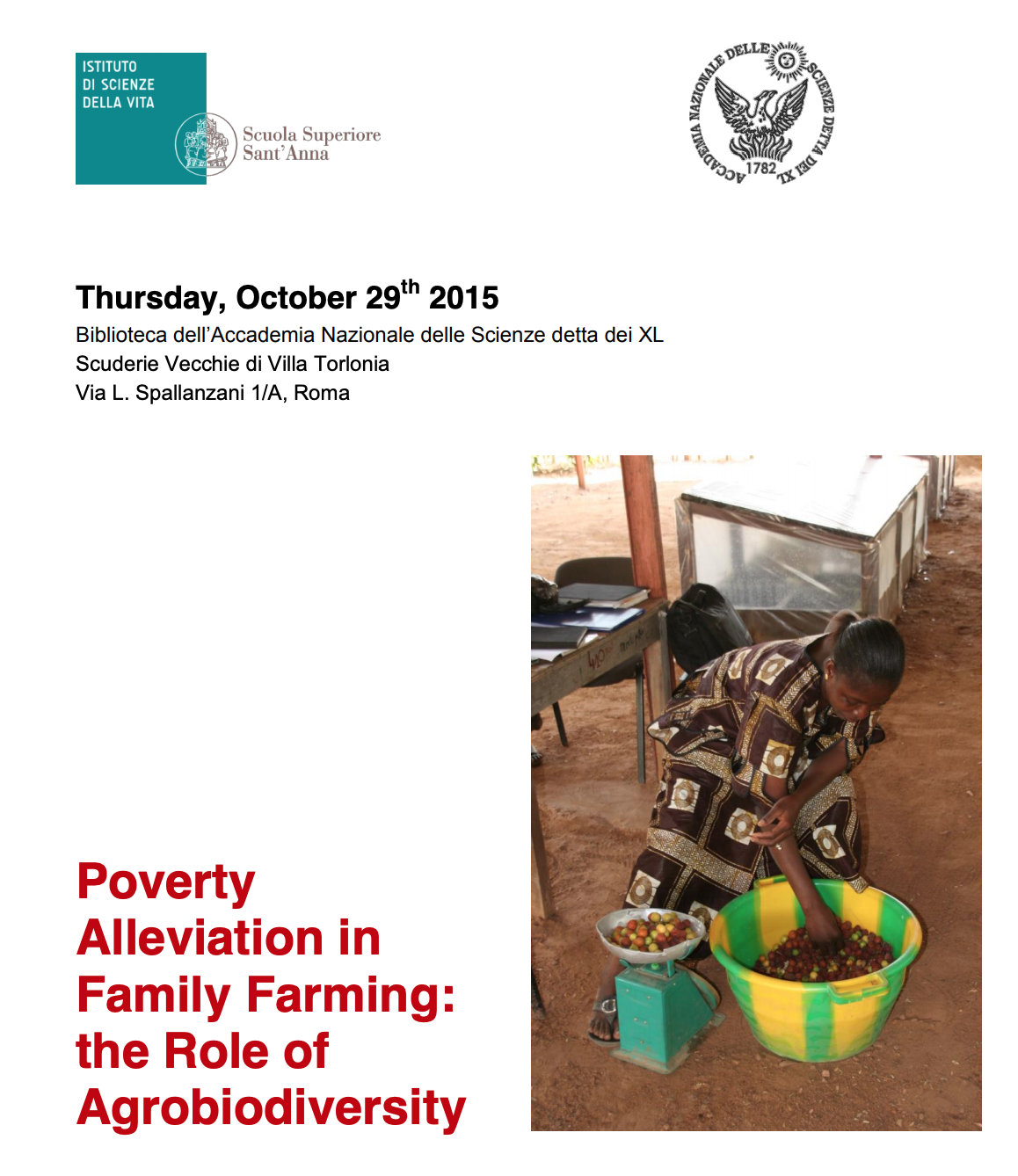
Family farming is the most widespread form of food production in vast areas of the world. In such areas, food security is jeopardized by global phenomena like climate change, limited access to land and resources, social conflicts and inequality, and rural abandonment. Agrobiodiversity has an important role to play in the mitigation of and adaptation to climate change and in making family farming sustainable.
This seminar, in line with the theme of the 2016 World Food Day, highlights the key role of Agrobiodiversity – tackled at the genetic, species and habitat level – to address global challenges for food production and family farming and to provide locally viable solutions. The seminar draws upon the experience of the International PhD Programme on Agrobiodiversity, run by Sant’Anna School of Advanced Studies in Pisa, Italy since 2004 in collaboration with the National Academy of Sciences. Students from Asian and African countries will present the state of family farming in their own countries and how their PhD project may help provide tailor-made solutions based on Agrobiodiversity.
The programme is available here.

